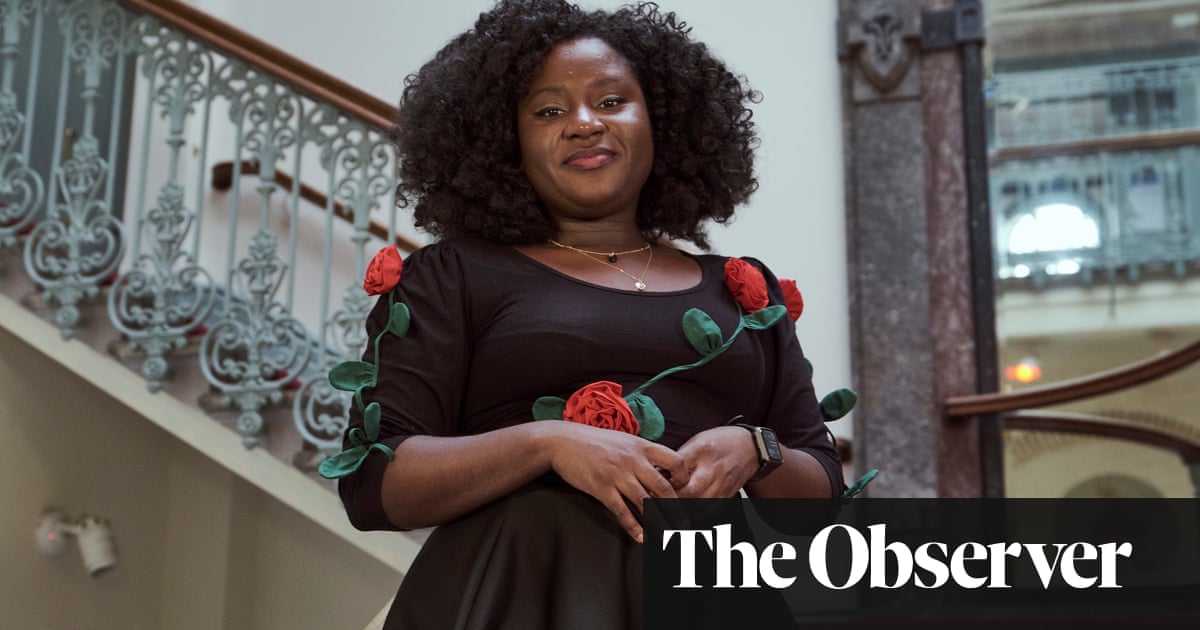
Labour’s deputy leader, Angela Rayner, has said her own experience as a care worker helped to convince her more flexible working could be a “win-win” for staff and employers.
Speaking to the Guardian after announcing new policies last week on employment rights and flexible conditions, Rayner said she had helped negotiate family-friendly working when she was a trade union representative.
“We were frontline manual workers, delivering 7am till 10pm care in people’s homes. We introduced a flexible rota that worked for the staff, and we saw productivity go up. The wellbeing of the staff, as well as the outcome for the service user, was they had the same staff going in – and sickness levels went significantly down as well, so it saved money for the employer. It’s a win-win,” she said.
“Of course, not everything can be achieved in every single workplace, but there are flexible options I believe in every workplace. If an employer looks after the employees, the employees will look after the employer, and it’s reciprocal,” she added.
Rayner announced this week that a Labour government would legislate to give companies an obligation to provide flexible conditions – including compressed hours, and accommodating caring responsibilities such as the school run – unless they can show it is unworkable.
It was part of a package of measures, drawn up with the shadow workers’ rights minister, Andy McDonald, that also included ensuring all employees gain rights from day one in a job.
The plans have been welcomed by the Corbynite campaign group Momentum, and helped to assuage fears among some in the party that Starmer would ditch the radical 2019 manifesto wholesale.
Speaking after a visit to a flexible working hub in Hull, Rayner said Labour’s aim was nothing less than to achieve a “cultural shift” in the workplace.
“It’s about changing the culture in our country. The whole emphasis to me is, yes there’s individual nuggets in here, but it’s about a cultural shift away from people being inflexible, and not looking for new and fresh ideas about how people can engage in the workplace,” she said.
Rayner shrugged off suggestions that she has been at loggerheads with Keir Starmer – or could even challenge him for the leadership, as some supporters had urged her to do before the Batley and Spen byelection earlier this month.
“Me and Keir have been working incredibly closely together since the start of the pandemic,” she said, comparing the day when they were both elected in the depths of the first lockdown to “an arranged marriage, almost, by telephone”.
“We bring different things to that leadership. And I think that works,” she said, calling them “yin and yang”.
Labour’s loss of the Hartlepool constituency in May sparked panic about Starmer’s prospects of leading Labour to a general election victory, with some MPs quietly casting around for a candidate who could gather the 40 signatures necessary to mount a challenge.
But his leadership has appeared more secure since the party held the Yorkshire seat of Batley and Spen.
Rayner said she and Starmer had different approaches. “You know, my style is more robust as people know: I’m more bombastic, in the way in which do things, I say it how I see it: and therefore I bring that freshness to the partnership.”
“Keir’s very forensic, he’s very intelligent. He’s very passionate about making sure that the country is a better place,” she said.
Rayner has spoken in the past about growing up in poverty, and becoming a carer for her mother, who struggled with mental illness, from the age of 10.
“I like to think I overshare and Keir undershares,” she said. “If you look at Keir’s background, it’s not dissimilar for mine: he looked after his mum, I looked after my mum,” she says. “Keir wasn’t from a privileged background”.
Challenged about a dip in Labour’s membership, Rayner said she was focused on voters. “Of course we want to attract people to be members of the Labour party, but what we need to do is we need to attract voters as well. And what we’re doing is we’re speaking to the country: we’re saying that actually we don’t want to be an opposition, we want to be a government,” she said.
Labour is in the process of laying off up to 90 staff via voluntary redundancies, as Starmer seeks to repair the party’s shattered finances after costly election battles and a string of legal cases.
The former shadow home secretary Diane Abbott criticised Labour this week for simultaneously seeking to hire staff on six-month contracts to handle a backlog of complaints against members.
“So Keir will make Britain the best place to work – unless you work for Labour,” Abbott tweeted. Rayner rejected that, highlighting the importance of ensuring the party is financially viable.
“We don’t want to be making staff redundant. It’s an awful situation but we can’t lose a general election, like we did, and then not look at our organisation,” she said.
And she insisted the complaints-handling staff will not be on zero-hours contracts, but were being hired on “a fixed-term contract for a specific piece of work”.
“I’m a trade unionist. I wouldn’t dream of doing anything that was detrimental to our workforce but you know, we have to be financially viable as an organisation,” she said.











